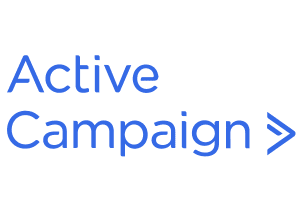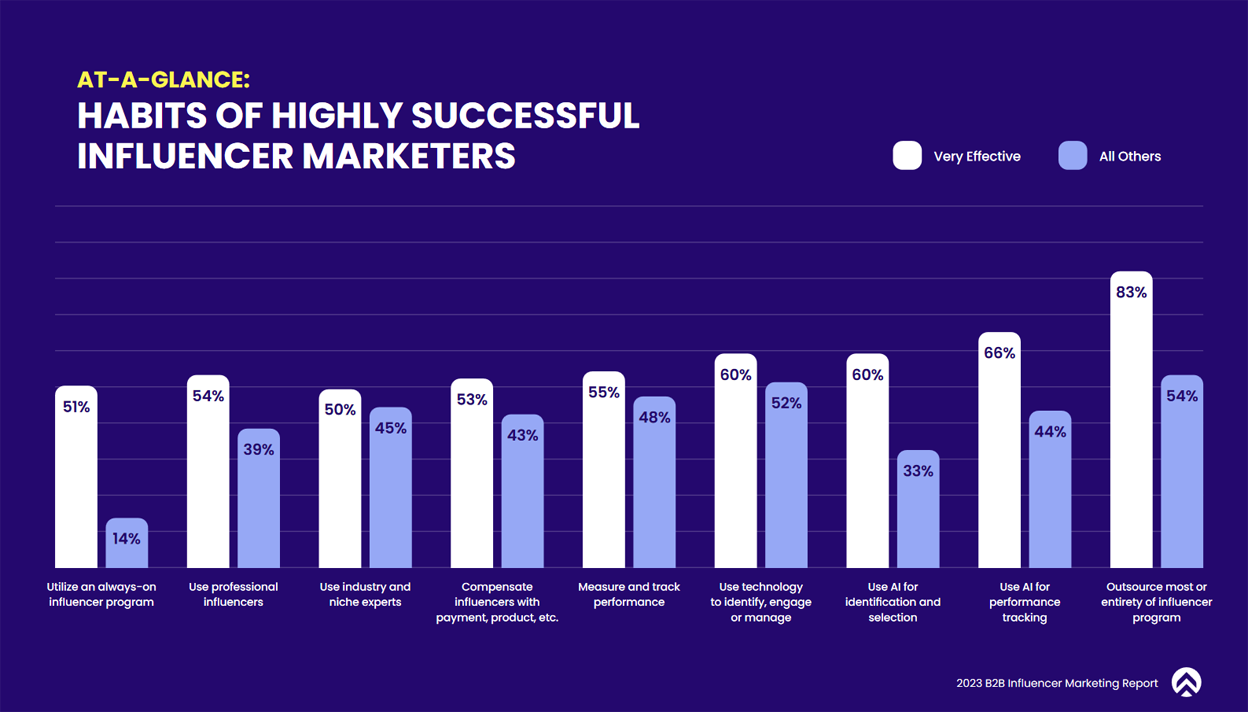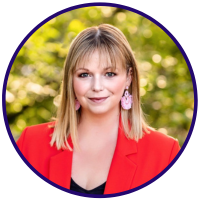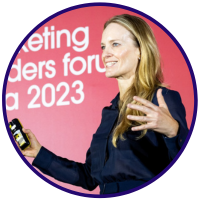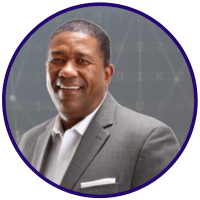Unlocking Exponential Growth: The Blueprint to Scale Your Business written by John Jantsch read more at Duct Tape Marketing
The Duct Tape Marketing Podcast with John Janstch

Questions I ask Tony DiSilvestro:
[00:45] How did you get to this incredible stage in your entrepreneurship career?
[01:11] What are the common misconceptions about business scaling?
[02:13] What is business scaling?
[03:00] According to your book: what are the core concepts of business scaling?
[04:20] How do you monitor business scaling as well as technological advancements in your industry?
[06:32] How do you deal with clients who resist the idea of being called a people business?
[07:52] Is there a framework for building a people-centric culture?
[09:59] How do systems build a better culture?
[11:35] How do you change the mindset of a non-people-centric culture?
[12:54] Are there must-have performance indicators, and how do we use them to make better decisions?
[14:24] What advice do you have for businesses that want to grow but feel stuck?
[16:10] After AI, what trends should we look out for in business scaling?
[18:01] Where can people connect with you and find out more about your work?
More About Tony DiSilvestro:
- Tony’s Speaker Kit: Tony+DiSilvestro_Speaker+Kit.pdf
- Visit his website
- Forbes Author: The Business Scaling Blueprint Released Apr 2023
Get Your Free AI Prompts To Build A Marketing Strategy:
Like this show? Click on over and give us a review on iTunes, please!
Connect with John Jantsch on LinkedIn
This episode of the Duct Tape Marketing Podcast is brought to you by the DeskTeam360
![]() Desk team 360 is the #1, flat-rate, digital marketing integration team, that helps small businesses and marketing agencies with graphic, web design, and on-page marketing services.
Desk team 360 is the #1, flat-rate, digital marketing integration team, that helps small businesses and marketing agencies with graphic, web design, and on-page marketing services.
John (00:03): Hello, and welcome to another episode of the Duct Tape Marketing Podcast. This is John Jantsch, and my guest today is Tony DiSilvestro. He is an entrepreneur, business consultant and keynote speaker, passionate about helping businesses realize their exponential growth, Tony's successes, and these are his words and failure too, have afforded him life's lessons that he enjoys sharing with others. He's also the author of the business, scaling Blueprint, which we'll probably dive into a little bit today as well. So Tony, welcome to the show.
Tony (00:34): Oh, thanks for having me today. Excited to be here.
John (00:36): So let's talk about, we could take the whole show talking about your entrepreneurial journey, but let's give a few high spots that give people a sense of where you learned your hard-earned lessons.
Tony (00:49): Yeah, I grew up on the Jersey Shore as a kid and learned what the value of a customer at such a young age, and it's really given me the path to understand business and understand it doesn't really matter what business I'm in, I'm in the people business. And that's kind of where it all started for me.
John (01:04): So let's just dive into, I think this is a good jumping in point for all the positive lessons we're going to talk about. What are some of the things that people get wrong, the misperceptions about scaling, why it's so hard to do, why people beat their head against the wall? I mean, what are we all doing wrong that's not allowing us to scale sort of elegantly?
Tony (01:23): There's a couple things. We all started out as business owners, we think we're great at something. So we say, Hey, we get this wild hair and we start a business. And the problem with that is everybody thinks they're entrepreneurs, but you don't truly become an entrepreneur until you start systemizing your systems. Learn how to delegate and then invest in your people. So one of the things that I find with a lot of companies, whether they're doing three to 5 million, 10 million a year, it doesn't matter, they're stuck. You know what I mean? They're wearing every hat in the company still, and they can't get out of their own way and trust people.
John (01:55): I can't remember where I heard this or who said this, but somebody said, business owners look at everything that needs to be done. They say, how are we going to get this done? Entrepreneurs look at everything and said, who can we get to do this? And I think that's a pretty key distinction. Right? Yeah. So this may sound silly, but let's define for the context of this conversation, what is scaling even mean?
Tony (02:16): Well, it's funny. Scaling for me means different things for every entrepreneur. So some entrepreneurs want quality of life to spend more time with their family. Some people want 10 x 20 x hundred x their business, so it doesn't matter. And I work with so many ceos all over the world and founders of companies, and every one of 'em has a different vision of what scaling means and what success means to them. So it's really, I don't put entrepreneurs or ceos in a certain box. I'm constantly just working with them, working with their c suites and really helping them understand what scaling truly means to them.
John (02:51): Yeah. I assume though there are a few key concepts, a few strategies that you probably bring to everybody to at least explore. So maybe you could, especially from the book itself, what are some of the core concepts that you have to be maybe are overlooked or people just don't think about them, that you find that you have to really focus on to get people started in the right direction?
Tony (03:12): The first thing I always start out with is really defining their brand. What are the three pillars of your brand? So many companies are disconnected with truly what the purpose of their company is. And it's not just the founder. The founder has this vision but doesn't resonate with the employees, and then ultimately it doesn't resonate with the customers. So I redeveloped their entire brand and make them truly think some of this processes takes over two months to develop. And then I go into systemizing their systems. So I've been in franchising for 14 years, and systems are everything. Anybody that's in franchising knows you're not selling, say a restaurant or a handyman company. You're selling a system, and that's what people want to buy. And that's why the failure rate in franchises is so much lower than regular entrepreneurs that are starting a mom and pop shop or a family owned business because they focus so much on the systems of the company. And then you can delegate and then you can train, and then you can market.
John (04:09): Talk a little bit though about one of the things that I know a lot of businesses, I've been doing this for 30 years, we can pick a change. I mean, there's so much change that goes on in business. The current change is probably a technology one that's got the most people buzzing right now, and that's ai. I mean, how do you continue to scale or have a vision for a business while constantly monitoring wholesale changes that might be going on in your industry?
Tony (04:34): It's funny, I love ai, but everybody's got to understand AI is a tool, and if you're not putting it in your tool bag, you're going to be left behind because it's happening so fast and you have to utilize it and see how you can adapt your business. I've changed so many parts of my business with AI already, but adapting technology is something I've done for over 30 years. Whenever there was something new out there, I'm wondering what's going on. When Bitcoin first came out, I tried to take it in my restaurants and I wanted to accept Bitcoin, and this is before it was even out. It was like $4 of coin. And I wish I would've known to buy a wallet at that time, but I didn't. But the thing is, if you're not adapting to change, if you're not understanding friction and understanding what's happening in your business, then you're going to die. You're never going to make it. Change is inevitable in our companies, and you have to be a change advocate.
John (05:26): I often tell in the marketing world, people are talking about AI replacing their jobs. I mean to do content and all the things AI can do. And I said, no, AI's not going to replace your job. Somebody's as good as you that's using AI is going to replace you. And I think, yeah, I think your point of it's just a tool. It's like, how can it allow us to do something faster and better? If it can't, then it's not useful. You mentioned my
Tony (05:51): Business,
John (05:52): Go ahead, finish. Go ahead. Was going to got just enough lag that we're talking over each other. Alright, one of your businesses go,
Tony (06:00): I said one of my businesses a marketing company as well, and the same thing is always looking for results. And I'm always looking for AI and other avenues to help people grow their businesses and scale. So I mean, every tool that's out there and it's as accessible, you need to be educated on it and learn from it. Go on YouTube, find a video. It doesn't matter. Just educate yourself.
John (06:19): So you mentioned already, and I want to dive into it, but every business is a people business. It doesn't matter what they sell, what they do. So talk to me a little bit about that idea, but then let's get into some specifics because I bet you get some pushback from somebody's like, no, we sell blah, blah, blah widget. We're not a people business.
Tony (06:37): So a lot of times I go into business and I truly mean it. We're in the ninety-eight 0.6 degree business. That's the business we're in. And I've founded over thirty-three different companies in different industries. And every single business I'm in, it's all about human capital and how are we helping human capital accomplish their goals and the results that we're looking for? And people will push back and they're like, no, we're architects. I said, no, you're designing somebody's home. You're not designing their house. This is where people are going to live. So I'm very results-driven, right? So if I walk into a sales team, I'm looking at sales-centric versus results-centric motivations of selling because if you're selling, you're dying. But if you're focused on results, then you're going to actually do something. So when we're looking at human capital and businesses, we need people to grow. And when you talk about scaling, the number one way to scale is through delegation, as we alluded to before. But that is people. And I don't care if you're selling cars, widgets, food doesn't matter, building homes. I mean, that's what it is.
John (07:37): So yeah, it's interesting. Your portfolio of businesses is all over the map. I mean, you have a building company, you have a restaurant. You already talked about some professional services that you offer. So do you have, not templates the wrong word, but do you have a framework that's a better word for this idea of building a people-centric culture?
Tony (07:57): Yes. Invest in your systems immediately. Entrepreneurs go out of business right away. But when I'm talking about investing your systems, I'm talking about as granular as you possibly can. If I would've taken that time when I first opened my business to really think about the processes and procedures and really document every system, I wouldn't have had two major failures in my life because I would've been way more educated. I would've had better systems, and I would've been able to delegate and actually avoid mistake avoidance to something I work with a lot with entrepreneurs all over the world. How are you handling mistake avoidance, right? Learn from those people. I was always surrounded, everybody's like, go talk to those old people. They've been there and done that. You can't replace wisdom. There's no doubt.
John (08:38): Hey, have you ever tried to hire freelancers and found that the quality of work was lacking? Or you got all the outsourcing excuses as to why the work didn't get done on time? Well, desk Team 360 has revolutionized the outsourcing game with their insourcing program that eliminates all those frustrations and excuses. You get unlimited graphic designs, website funnels, crm, email automation integrations, automations, really anything that requires you to log into software. Imagine all the time and frustrations you can save from trying to get your tech work done properly. We use Desk Team 360 every day in our business, and so I've negotiated you a 10% deal. That's right. Just go to Deskteamthreesixty.info book a discovery call, and you'll receive the special duct tape marketing 10% off because hey, your pal John always takes care of you. So that's it. Go to Deskteamthreesixty.info and book your call today. I know where you're going with this, but let's make it as clear as possible for the listeners. How does systems build a better culture? How does that relate to people being happier or more satisfied in their jobs?
Tony (09:50): Sure. There's no doubt. Systems create confidence, right? Systems give people a clear expectation. My training company is all about upper mobility training. So we train employees and give them a clear path to growth, but you cannot create that clear path to growth unless you give them a system, set proper expectations. And if they do fail, what are you looking at when that employee fails? You're going back, fix your system because it's not the employee that's going, it's typically your system that's broken. So when I talk about systems, I constantly, I love friction. There's nothing better than friction because the problem is an opportunity. Opportunities create solutions and solutions create results. And I'm driven that way every single day. We don't have problems in our companies. We have opportunities. And if you're focused that way and you're creating systems that help people grow and achieve the result that you're looking for, then the culture's better in your company. They love coming to work every day. They know the path and they see a growth path. Because I'll tell you, I've hired so many employees recently, and the one question, is there an opportunity to grow? Everybody right now is so focused on growth.
John (10:55): Yeah, yeah. More so than sauer is on there, but it's way down the list, isn't it?
Tony (10:59): Right? No doubt. Yeah.
John (11:01): So alright, if company hires you, I'm sure, especially if you have a training company, people are like, will you train those idiots for me? Right? I mean, unfortunately there's a little bit of leadership mentality that still has that. How do you get the lead? Because you can train until you're dead, right? I mean, if it doesn't start at the top, how do you get people who have the wrong mindset to shift their mindset or just tell 'em, Hey, I can't help you.
Tony (11:25): No, I show them a path. So it's not only our training system, we go through the roi of the company. How are you increasing incremental sales? How are you working on customer satisfaction, employee satisfaction? So you can't just walk into a founder or a CEO and say, your training's terrible. You need to just train these people. So what we've developed is a very in-depth training system that's all about upper mobility. And it's not just for the low level employee, it's all the way up to the top level managers. How are they improving themselves? So our system really gives them, they can self-analyze themselves and realize where they're at any given time, and we equate it even to their salaries. So they can say, Hey, I want to make more money. Okay, well let's do this evaluation on you, figure out where you're at, and then show them a clear path for success. But most companies train six to 12 weeks, and that is it. The employee, we train 52 weeks a year. So training is about communicating. If you're not communicating with your staff, it's very hard to train them.
John (12:26): So we're kind of getting into measuring. Everybody realizes they need to measure, they need to have kpis. Rarely do people do it or use it to manage by. Are there performance indicators that we absolutely all need to have? How can we get better at using the data to make decisions?
Tony (12:46): You have to know your numbers. So every company I go into, I can't tell you how many companies I walk into, they don't have a p&l. I'm like, how are you running a company without a p&l? You don't know your numbers. So the biggest problem, and it's so prevalent, you want to believe it, but the biggest thing is going into the companies KPIs are only as good as the person actually using them. I like to say, a lot of times meetings are useless. It's what you do after the meeting, bringing KPIs and bringing solutions. Anybody can bring a problem to a meeting, but can you bring the solution and how we're solving things going forward? KPIs follow systems. If your kpis aren't working now you're recalibrating your business. So I love KPIs. I mean, I use 'em in every business I do. We have weekly meetings with all of our top level managers every single week, and they are forced to bring it to the meeting. You better come with something. And a lot of companies don't even invest time in meetings. They think they're a waste. Oh my God, that's all we do is have meetings. It's because the meetings are useless. They're not bringing enough to the meetings, they're not holding their people accountable.
John (13:47): I love in marketing, not only kpis, but just every step of the funnel, so to speak, or something we're doing. I mean, a lot of times people go, oh, this isn't working. We're not getting enough leads. It's like, no, this one little place is not working. And if we fix that and we'll fix everything. But if we just throw out the entire process because we're not measuring happens all the time. So if somebody's thinking, gosh, I want to scale, I'm stuck. You mentioned stuck from the stage give. Here's my advice for how to get started.
Tony (14:18): Oh, for sure. If it's a new business, I mean if they're stuck, a lot of times what I go in and I analyze what they're doing, it's typically a trust issue or they have corporate fatigue. Entrepreneurship is the loneliest question in the world, and it's because we're afraid to talk to other entrepreneurs and we're not getting out there and explaining. But if we realize we're all in the same boat, there's so many fundamentals that I go through when I'm coaching a CEO or an entrepreneur. It's not just one. It's typically, so if I teach eight fundamentals, eight modules that I teach, it might be delegation, it might be systems the next month, it might be marketing after that. Are you an experience creator? What is the experience you're delivering to your customer? I'd love to say it's a cookie-cutter system, but it's never that way because every entrepreneur at different stages in their career are suffering from a different fundamental that they didn't perfect well enough or they want to grow. And if you want to go from 5 million to 10 million, you probably have to retool everything in your company. So what I do a lot of times is I reverse-engineer. Every single company I go into, I say, where are you at today? Every process that got you to this point, because we have to redo everything to get you to the next level.
John (15:29): Yeah. You talk about the startup. To me, the sadder one is somebody that's been in business 16, 18 years, they're making a salary. There's no joy in it anymore. To me, that's the one that's the saddest, quite frankly.
Tony (15:42): It happens all the time too. All
John (15:44): The time. A lot of jobs just get boarded up called companies after they just run out of steam, right? Yeah. So alright, let's bring out the crystal ball. What should we be looking future-wise trends, things we should be having on our radar as we talked a little bit about ai, but what's next?
Tony (16:02): Yeah, I think we talked about technology, but I mean it's rapidly changing the business environment, especially in the marketing. I know you do a lot of marketing changing. Instant gratification is right there for everybody. And AI is making that even worse. We thought the cell phones were bad. Now you really have instant gratification. So it's really adapting to the marketplace. Watch the news, watch the trends in the world and making sure you're adapting your business to it because you'll be left in the dust. And it's seriously a big problem right now, but there's still a point where humans like human interaction and don't forget that. So making sure whatever, if you're selling widgets or you're selling jewelry, you're selling whatever you're doing, that human interaction is very essential because even though we're in the people business, customers are our people, but they do want things faster. And I think they have to move very agile. And if you're not focused on that and you're thinking the old way's going to work, it's just not going to happen.
John (17:00): Well, you've been doing this for a while. I've been doing this for a long while. You constantly, you stay in this long enough, you see the pendulum swing back and forth, right? I mean, it's like everybody's into technology or social media or whatever the thing of the day is, and then all of a sudden direct mail works better than ever. It happens so often. I mean, you can't just say, this is it. It's like every 60 days, this is, it is going to be something new.
Tony (17:24): My daughter's in peril. She's many skirts are coming back.
John (17:29): Yeah, no question. I was just in Europe last week and they were in Brussels. They're all wearing hot pants. So remember that from the seventies, right? So, well, Tony, I appreciate you taking a moment to stop by the Duct Tape Marketing podcast. You want to invite people where they might connect with you, find out more about your work,
Tony (17:47): Go to Tonydsilvestro.com and my whole website's there, come see me, love to give you a copy of my book, come see me. And then just, if I can help entrepreneurs all over the world, that's my goal.
John (17:58): Awesome. Well, again, I appreciate you taking a moment to stop by, and hopefully we'll run into you one of these days out there on the road.
Sign up to receive email updates
Enter your name and email address below and I'll send you periodic updates about the podcast.
from Duct Tape Marketing https://ift.tt/GSdYAkC
via IFTTT

